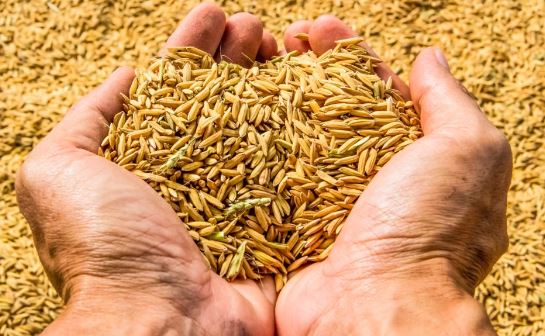New Delhi: The government is planning to include natural farming in the agriculture education curriculum, the Rajya Sabha was told Friday.
The government is promoting natural farming through the Bhartiya Prakritik Krishi Paddhati (BPKP) introduced during 2020-21 as a sub-scheme of Paramparagat Krishi Vikas Yojana (PKVY) for the promotion of traditional and indigenous practices, including natural farming.
“The Indian Council of Agriculture Research (ICAR) has constituted a committee for developing syllabus and curricula of natural farming at under-graduate and post graduate level,” Union Minister for Agriculture and Farmers Welfare Narendra Singh Tomar said in a written reply to the Rajya Sabha.
The scheme, natural farming being a major component, mainly emphasises on exclusion of all synthetic chemical inputs and promotes on-farm biomass recycling with major stress on biomass mulching, use of cow dung-urine formulations and other plant-based preparations.
Under BPKP, financial assistance of Rs 12,200 per ha is provided for three years for cluster formation, capacity building and continuous handholding by trained personnel, certification, and residue analysis. Until now, under natural farming, an area of 4.09 lakh ha area has been covered and a total fund of Rs 4,980.99 lakh has been released to eight states across the country.
The states that have benefitted are Andhra Pradesh, Chhattisgarh, Kerala, Himachal Pradesh, Jharkhand, Odisha, Madhya Pradesh, and Tamil Nadu, Tomar informed.
In reply to another question in the Rajya Sabha, Tomar said the government is also implementing dedicated organic farming schemes of Paramparagat Krishi Vikas Yojana (PKVY) and Mission Organic Value Chain Development in North-East Region (MOVCDNER) since 2015-16. An amount of Rs 650 crore has been approved for promotion of organic farming for the year 2021-22.
“These are implemented to encourage farmers to produce organic manure and to promote organic farming of foodgrains in the country. Under these schemes, farmers are primarily encouraged to adopt organic cultivation using organic inputs and support is provided to the farmers for various components from production to value addition, certification, and marketing of organic produce. Hands-on training to farmers for on-farm production of organic manure / organic fertilisers and its use are integral part of these schemes,” he said.
Farmers are provided an assistance of Rs 31,000 per hectare for three years under PKVY and Rs 32,500 per hectare for three years under MOVCDNER for various organic inputs, including on-farm production/procurement of organic fertilisers.
IANS
